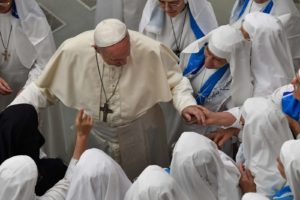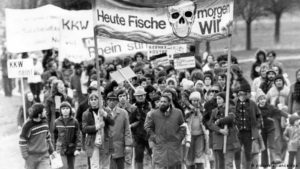
On Tuesday, Israel had its fourth parliamentary election in two years, a result of a political deadlock and disagreement over current Prime Minister Benjamin Netanyahu’s leadership due to charges of corruption and bribery.
Benjamin Netanyahu, the current and longest serving prime minister of Israel, and his right-wing party and alliances have won fifty-two seats in Israel’s parliament, the Knesset, nine short of a majority. Fifty-seven seats went to a collection of centrist, left-wing, and right-wing opposition parties. The total eleven seats were given to two parties, both of which are undecided in their support for Netanyahu – Yemina, the Nationalist party led by a former Netanyahu Lieutenant which won seven seats, and Raam, an Islamic-Arab party who won the remaining four seats in the Knesset.
With Netanyahu’s fate in the air, the Raam party might hold the key to how Israel’s new government will be formed, a paradox given the disdain for Arabs on both the pro and anti-Netanyahu blocs.
If they were to back Mr. Netanyahu’s opponents, the party members will need to work with a right-wing opposition leader, Avigdor Liberman, who has described some Arab citizens as traitors and called for them to leave the country. If it supported the Netanyahu-led bloc, Raam would be working with a prime minister who enacted legislation that downgraded the status of the Arabic language and said that only Jews had the right to determine the nature of the Israeli state. In a previous election, Mr. Netanyahu warned of high Arab turnout as a threat to encourage his own supporters to vote. Both options point to the larger problem of anti-Arab sentiments in Israeli politics.
This election made Mansour Abbas, leader of the Raam party, as a key political player. No Arab party has ever served in the Knesset as both the pro and anti-Netanyahu alliances are made up of ultra-religious Jewish parties. This election has put an Islamic-Arab party, made up of descendants of Palestinians, with far-right and Orthodox Jewish lawmakers. Professor of political science at the Hebrew University of Jerusalem, Reuven Hazan, told NBCNews that such a coalition would be a Passover miracle.
“Ideologically, I think you’re stretching the envelope much, much too far,” said Hazan.
Meanwhile, while Israel is voting for the fourth time in two years, Palestine will be voting for the first time in fifteen years. The Palestinian National Authority (PA) election, scheduled for May 22, will be the first election in more than a decade in where Palestinians can vote for their representatives. This comes after a violent dispute in 2007 between the militant group Hamas, who controls the Gaza Strip, and the Fatah, the faction that employs minimal autonomy over sections of the West Bank.
Palestine’s election, after years of standstill, has been viewed positively, with 93 percent of Palestinians already registered to vote. The push comes from a wave of young Palestinians, many are eager for this election as they were too young in the previous one. Their hope is that a power-sharing Hamas and Fatah leadership will be able to achieve statehood for Palestine in the near future.
While many in the international community see the two close elections as a great exercise of democracy, it is a tragic reminder of the “two-tiered system” that denies Palestinians their basic freedom and rights because of the unresolved Israeli-Palestinian conflict.
The West Bank territory is designated to become part of a future Palestine state under international decree. Yet, the territory is plastered with campaign banners, posters, and billboards for the Israeli election. It’s clear that the West Bank is under Israeli control. Around 650,000 to 750,000 Israelis are living on Palestinian land.
Election posters plastered at a military checkpoint in the West Bank. Photo Courtesy of The Electronic Intifada.
“Under the Rome statute of the international criminal court, a settlement enterprise of this nature is not only illegal but also considered a war crime,” writes Salem Barahmeh for The Guardian. This begs the question: how are illegal settlers able to run campaigns and an election for a country that has illegally occupied territory from a minority group?
Israel’s contradictory democratic establishment refuses to recognize the illegality of its acts, and continues to exercise its racist expansionist policies. Palestinians living under Israeli control in East Jerusalem, the West Bank and Gaza are not allowed to vote for the tyrannical regime that has complete jurisdiction on all aspects of their lives, while their Israeli neighbors living on the same land do. They are stripped of all rights and liberties, and don’t get to practice basic democratic acts including freedom of assembly and speech.
Despite the optimism for younger Palestinians to participate in a democratic election within Palestine, PA electoral laws have make it impossible to dismantle the monopoly of ruling blocs in Palestinian territories. Israeli military occupation also has a detrimental impact on the ability for Palestinians to participate in politics, both in Israeli and Palestinian territories. Palestinians virtually have no civil rights.
The tragic tale of these two elections is not a celebration of democracy. Rather, these elections are giving legitimacy to a system that maintains nationalistic supremacy and suppression of miniorites.
“In this reality, Palestinians are stripped of sovereignty and agency to shape their lives, their future, and the ability to challenge this oppression,” Barahmeh writes.
Israel’s oppression of the civil rights of Palestinians is a parallel to the German oppression of Jews prior to the Holocaust. In 1936, Jewish individuals lost all civil rights during a series of anti-Semetic and segregated legislation passed in Germany prior to the Holocaust. It is shameful to see history repeating itself, with the government of the same religious minority imposing the abominable persecution that they once endured.
The complexity of the Israel-Palestine problem is indubitable. While the two-state solution is still a viable option, the refusal by Netanyahu and far-right nationalistic Israeli politicians to work towards it is dismaying.



